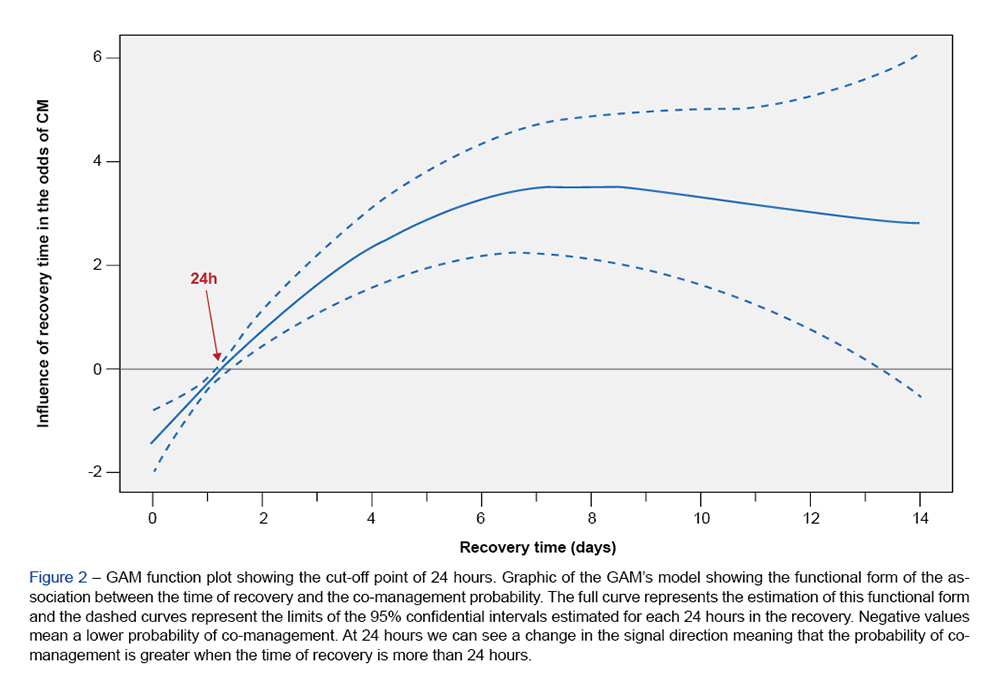SOCIAL MEDIA
Portuguese Medical Association's Scientific Journal

Introduction: Increased life expectancy leads to older and frailer surgical patients. Co-management between medical and surgical specialities has proven favourable in complex situations. Selection of patients for co-management is full of difficulties. The aim of this study was to develop a clinical decision support tool to select surgical patients for co-management.
Material and Methods: Clinical data was collected from patient electronic health records with an ICD-9 code for colorectal surgery from January 2012 to December 2015 at a hospital in Lisbon. The outcome variable consists in co-management signalling. A dataset from 344 patients was used to develop the prediction model and a second data set from 168 patients was used for external validation.
Results: Using logistic regression modelling the authors built a five variable (age, burden of comorbidities, ASA-PS status, surgical risk and recovery time) predictive referral model for co-management. This model has an area under the curve (AUC) of 0.86 (95% CI: 0.81 - 0.90), a predictive Brier score of 0.11, a sensitivity of 0.80, a specificity of 0.82 and an accuracy of 81.3%.
Discussion: Early referral of high-risk patients may be valuable to guide the decision on the best level of post-operative clinical care. We developed a simple bedside decision tool with a good discriminatory and predictive performance in order to select patients for co-management.
Conclusion: A simple bed-side clinical decision support tool of patients for co-management is viable, leading to potential improvement in early recognition and management of postoperative complications and reducing the ‘failure to rescue’. Generalizability to other clinical settings requires adequate customization and validation.